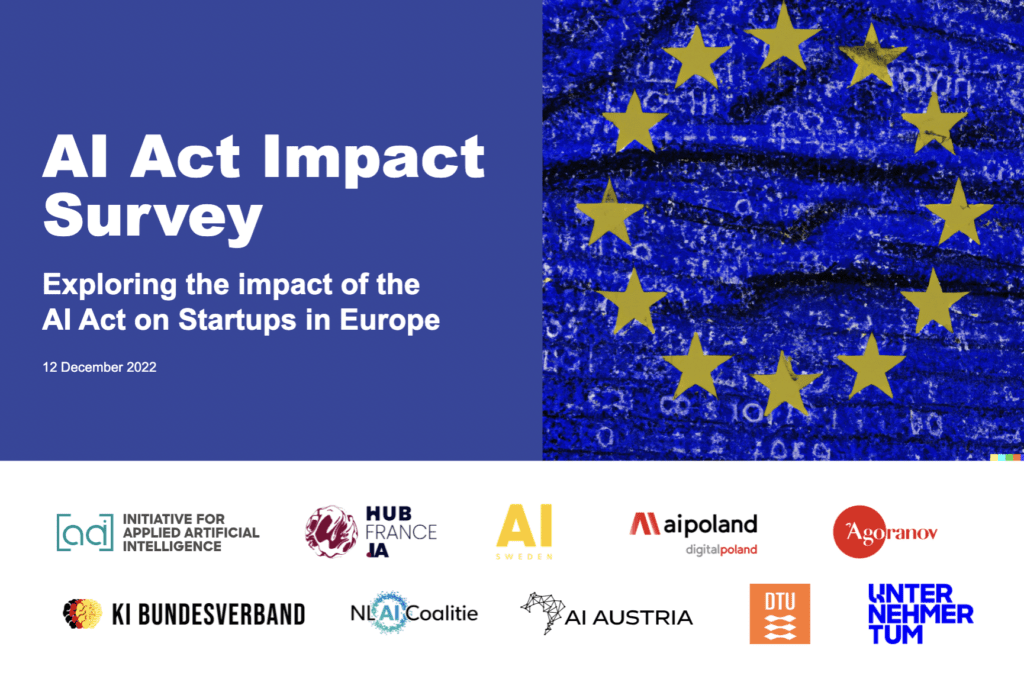
We talk about high-tech startups. The innovation engine of our economy that works on the latest technologies with AI experts as employees.
• We voluntarily limit Europe’s innovative power by introducing the AI Act in its current state. If we decide on doing this, we need to think about substantial support in parallel.
• Other SMEs with less skilled employees will face even more challenges, because besides BigTech from abroad and a few local companies, it is the Startups that make AI accessible to the broader economy.
In summary
• The 113 EU-based AI Startups in this survey drive AI Innovation by developing diverse AI Systems, with both specific and generic purposes.
• Now being somewhat competitive, 73% of the surveyed VCs expect that the AI Act will reduce or significantly reduce the competitiveness of European Startups in AI.
• 33% – 50% of the AI Systems would classify as High-Risk which goes way beyond the assumption in the Policy Impact Assessment by the EU Commission (5-15%).
• 45% would consider their solution as a General Purpose AI.
• 50% of the AI Startups believe the AI Act will slow down AI Innovation in Europe. 16% consider stopping to develop AI or relocation outside the EU.
• For High-Risk AI Systems, the additional requirements and obligations are a significant challenge for startups in terms of technical and organizational complexity and compliance cost.
• All relevant indicators for VC investments for high-risk startups will decrease.
• VC investments shift toward AI Systems with a specific purpose, in low-risk applications, and, to some extent, to non-AI startups and outside of Europe.
While this data reflects only a small fraction of the European Industry, it is the one driving innovation. Feedback from established SMEs as well as larger European companies indicates similar challenges. Large startup nations around the world like the US, UK, China, Israel support AI startups to grow in the global race to leadership in AI. Yet, startups in the EU will start with the burden of additional cost, slowed down innovation and lower valuations and VC investments. Exceptions for SMEs do not help as those startups want to grow and they need to consider compliance from the beginning if they don’t want to redo all the work once they grow beyond a certain threshold. There exist several options to lower the impact on the startup and innovation ecosystem in Europe. Each of them can and should be addressed for Europe to stay competitive in the global race to AI leadership.
